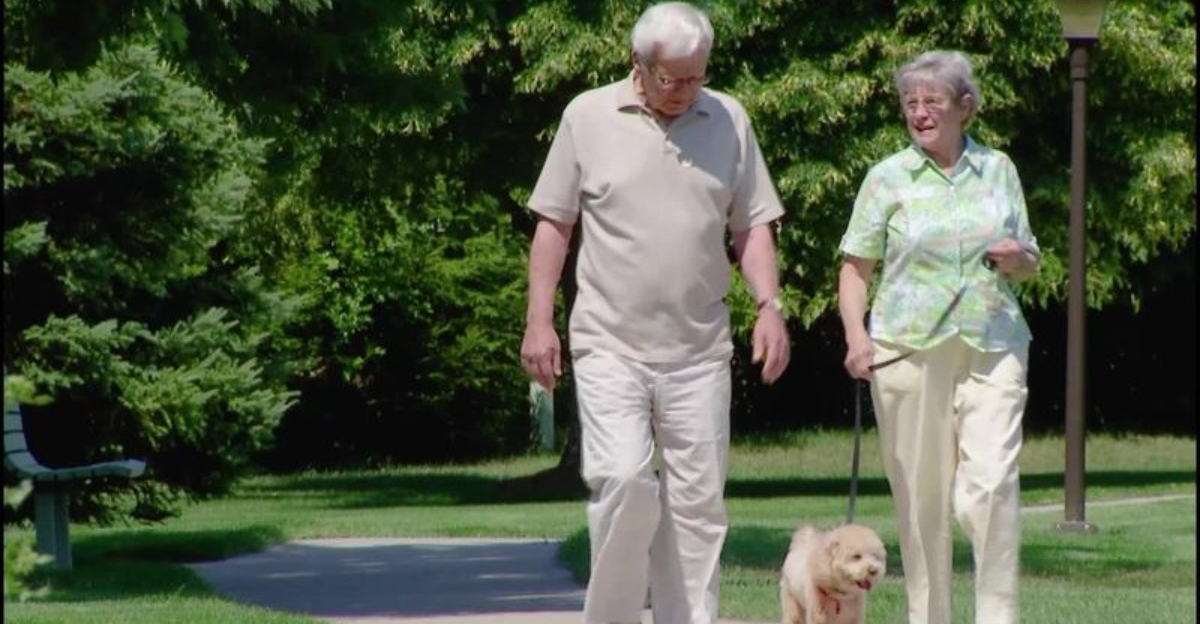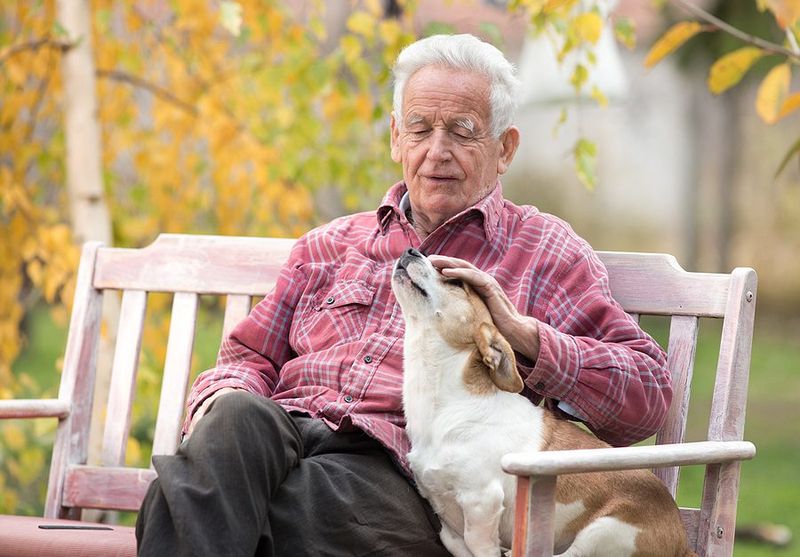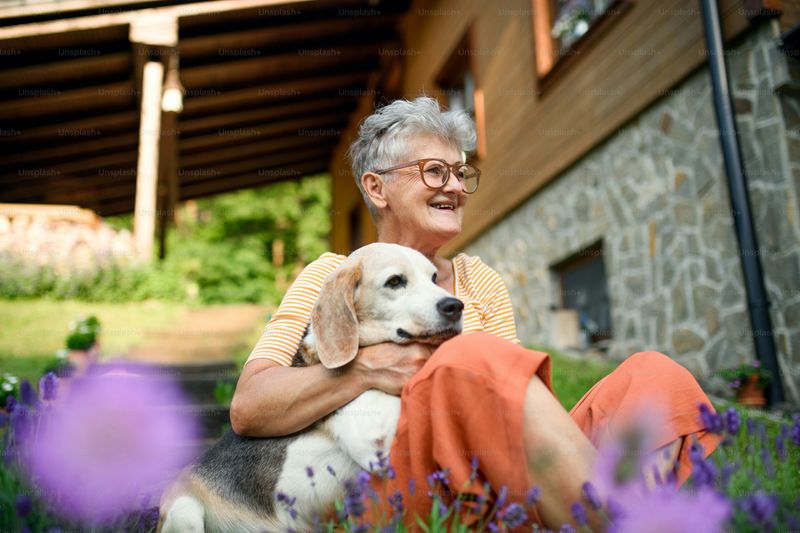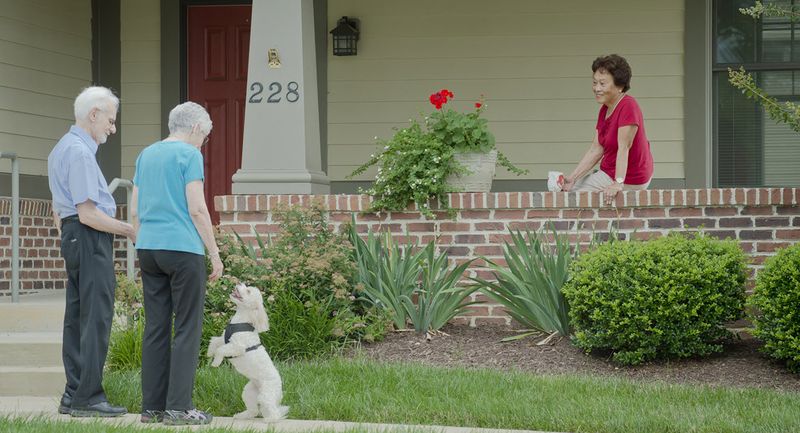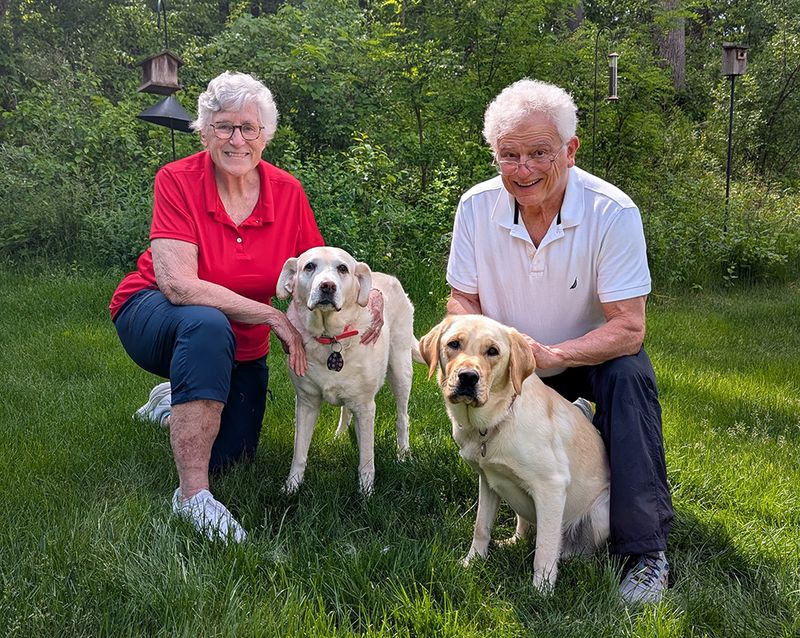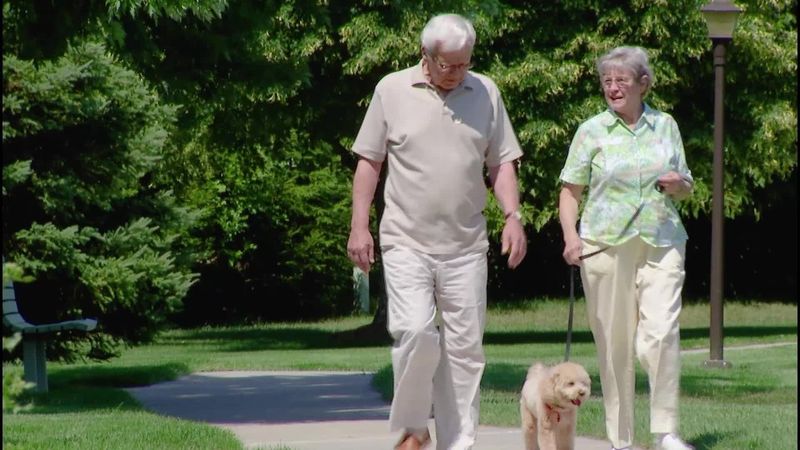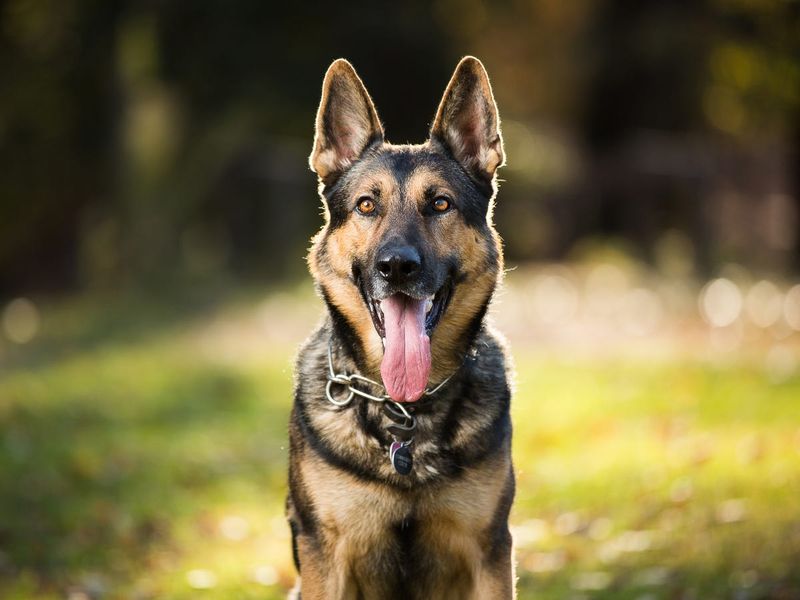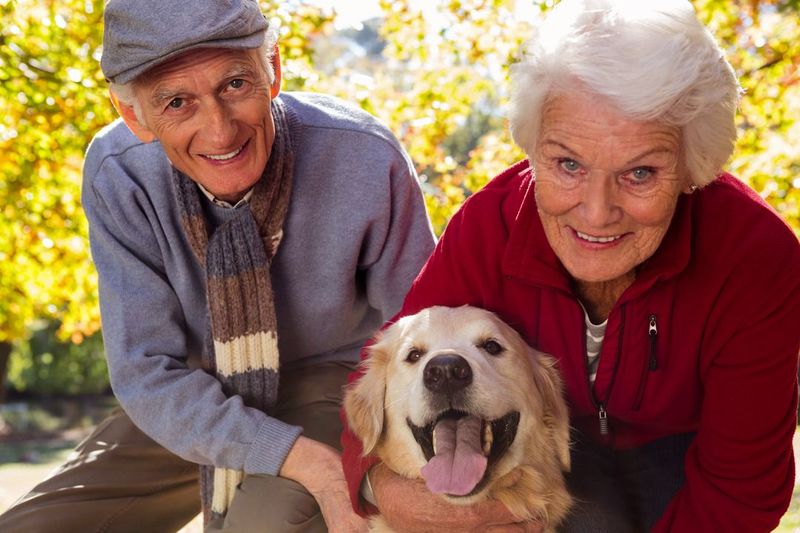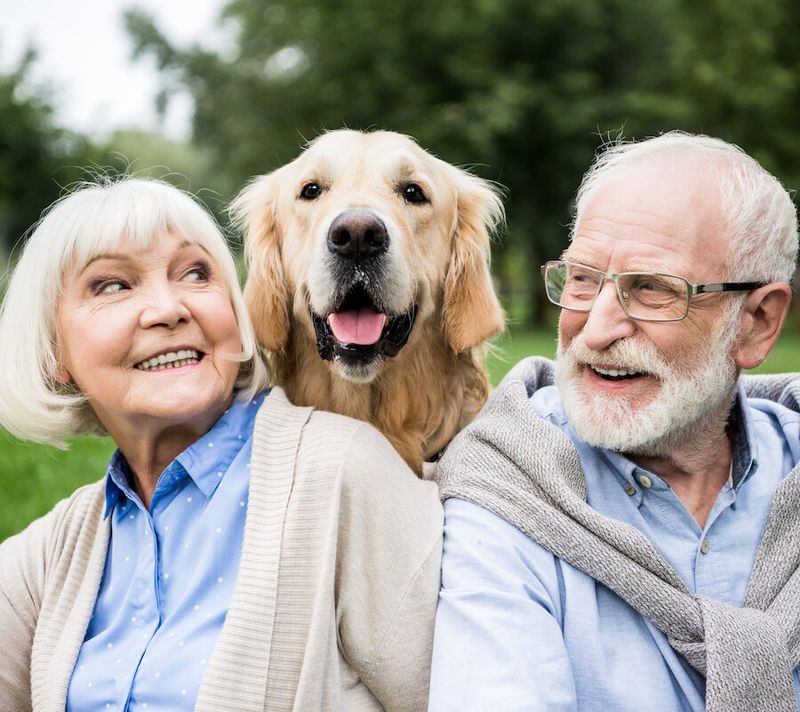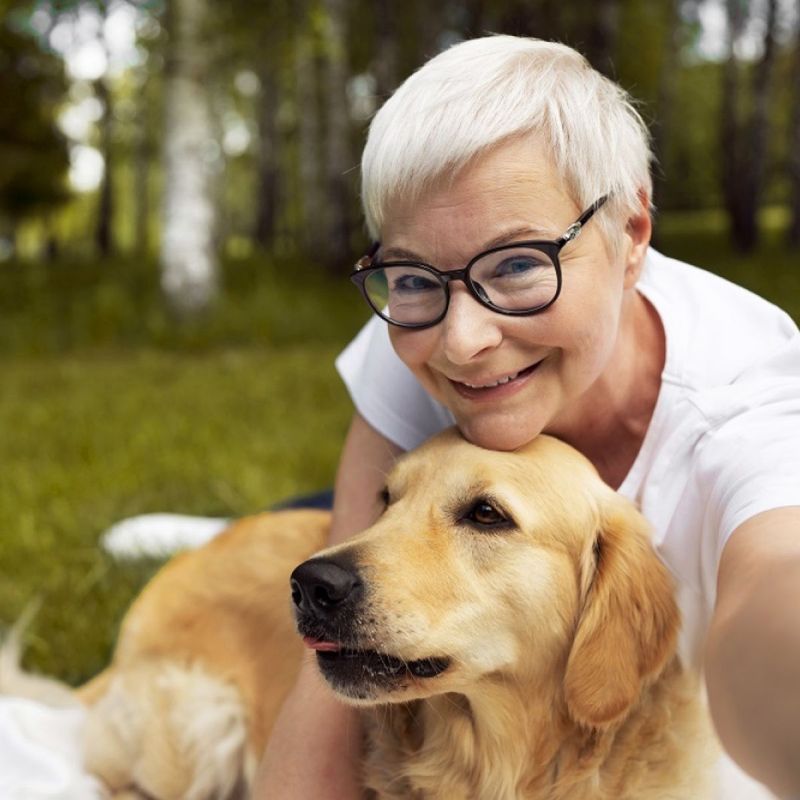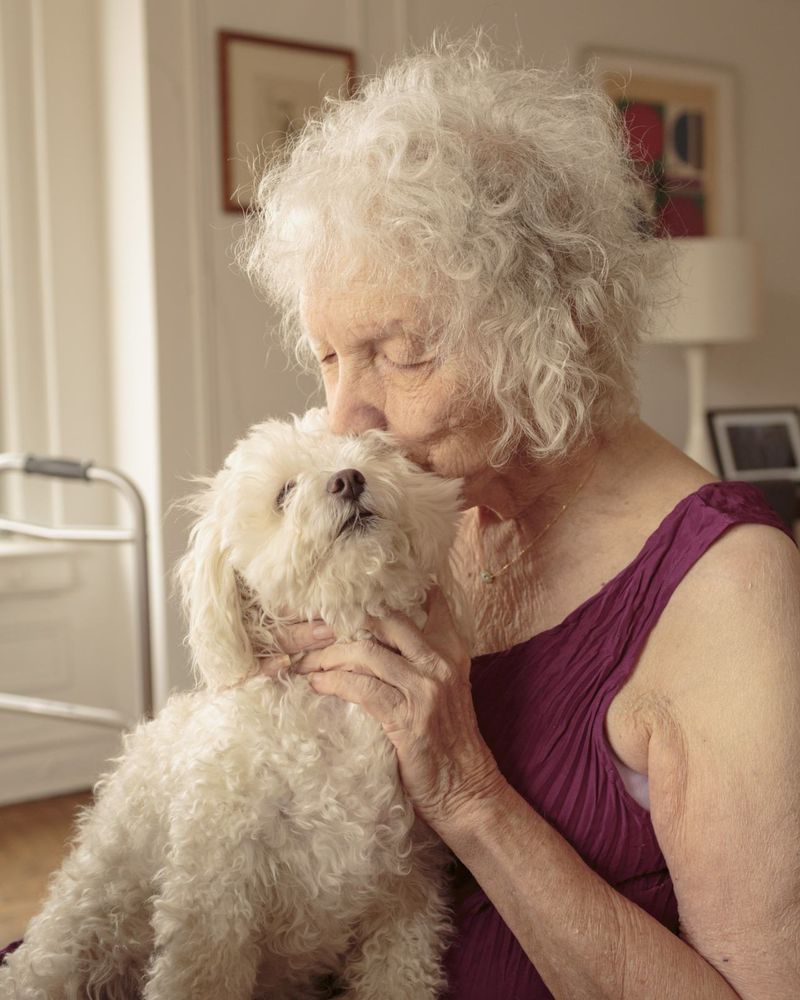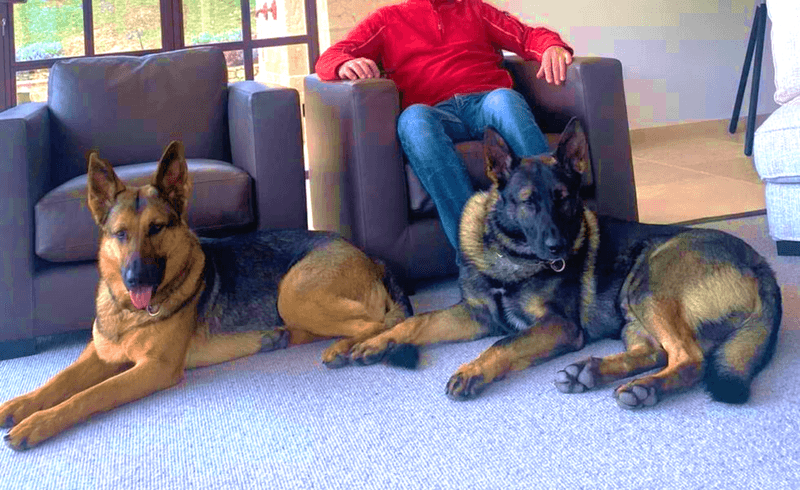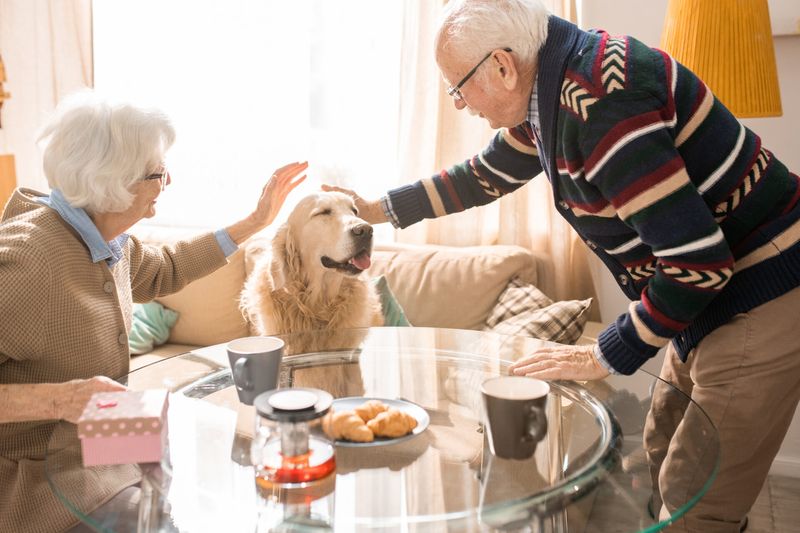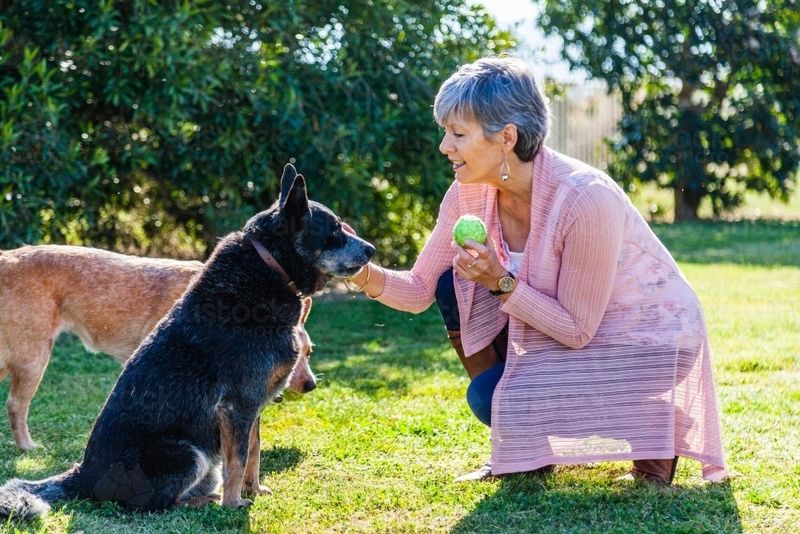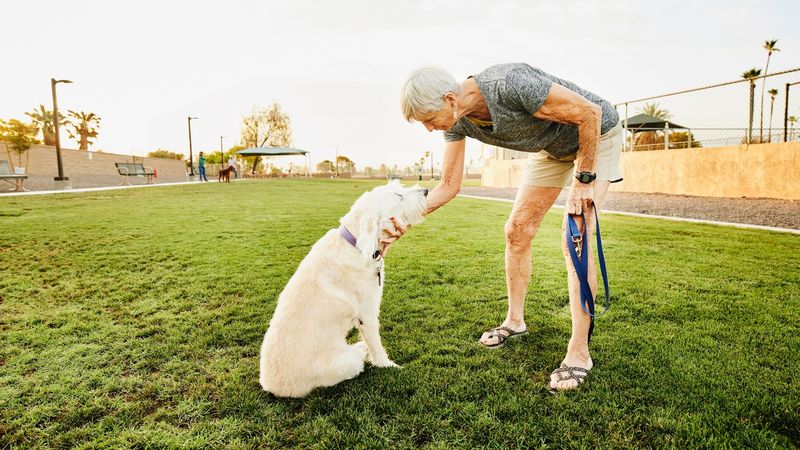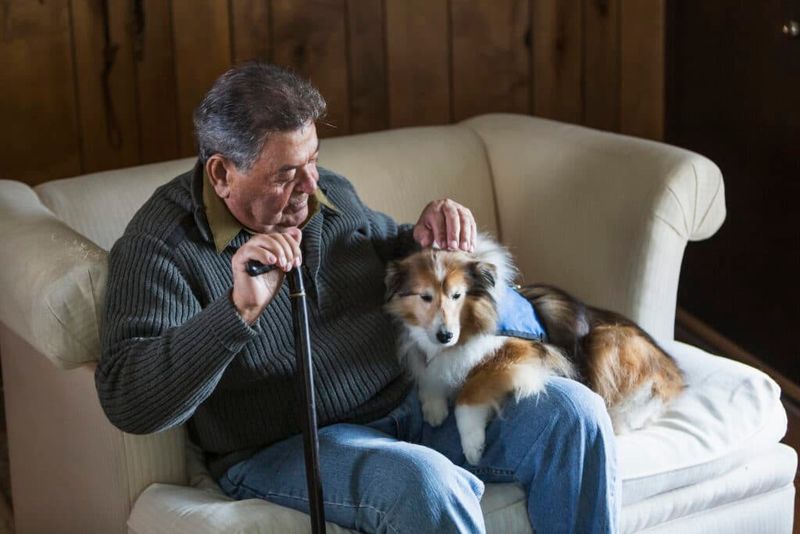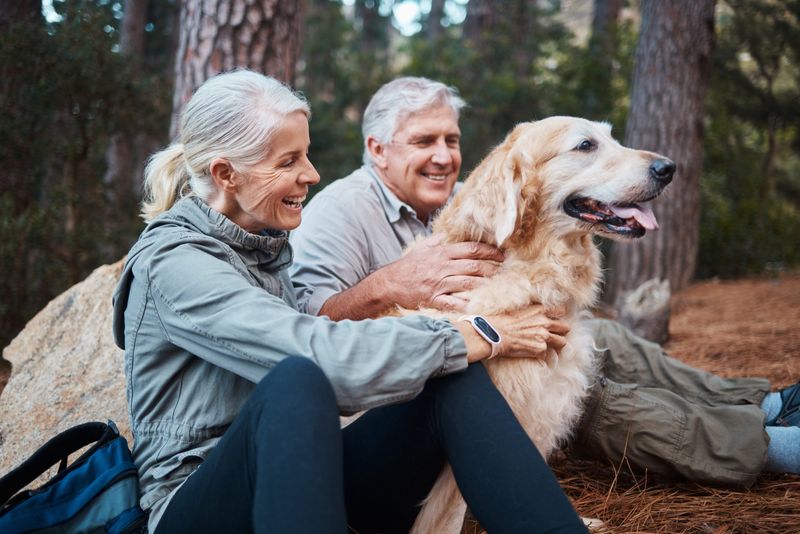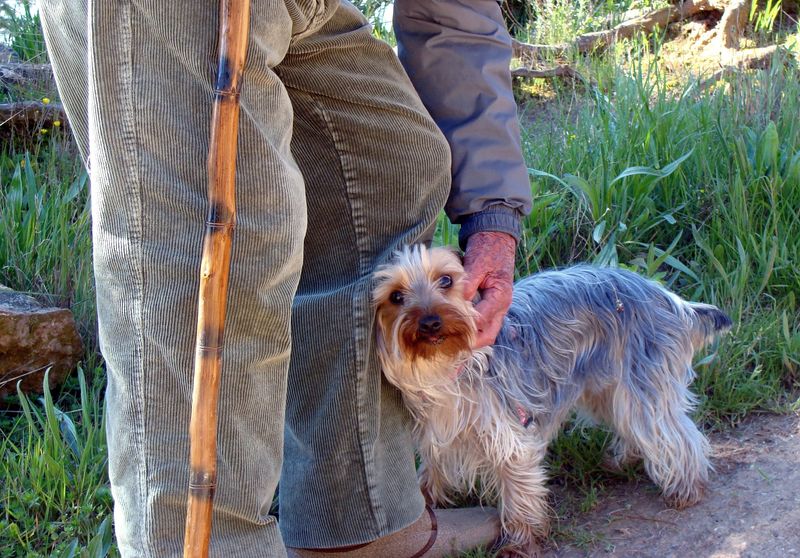Dogs and seniors share a special bond that goes beyond companionship. These loyal animals provide numerous benefits to senior wellness, while also relying on their human counterparts for love and care. In this blog post, we explore eleven profound ways dogs contribute to the well-being of older adults and nine ways these furry friends depend on them in return. From enhancing physical health to offering emotional support, the relationship between dogs and seniors is truly enriching for both parties.
Emotional Support and Companionship
Dogs offer unwavering emotional support to seniors, providing comfort and companionship when loneliness creeps in. These furry friends are excellent listeners, always ready to lend an ear without judgment. The simple presence of a dog can uplift spirits and ease feelings of isolation. Cuddling with a pet releases oxytocin, the ‘love hormone,’ which enhances emotional well-being. Moreover, dogs create a sense of purpose and routine for older adults. Knowing a loyal friend is always there provides a reassuring and soothing presence in daily life. Their companionship is irreplaceable.
Reduced Stress and Anxiety Levels
Interacting with dogs has a calming effect, significantly reducing stress and anxiety levels in seniors. The rhythmic act of petting a dog lowers blood pressure and promotes relaxation. Dogs are intuitive creatures, often sensing when their human needs comfort and affection. This intuitive bond helps alleviate tension and anxiety. In times of distress, a dog’s gentle nuzzle can be incredibly soothing. Furthermore, sharing a peaceful moment with a pet can lead to a more tranquil mind and heart. The therapeutic presence of dogs fosters a serene environment for older adults.
Enhanced Social Interaction
Dogs are social magnets, encouraging interactions among people. For seniors, walking a dog in the neighborhood or park often leads to friendly exchanges with fellow pet owners. These encounters help break the ice and can lead to meaningful friendships. The shared interest in dogs creates a common ground for connection. Attending pet-friendly events or joining dog clubs further expands social circles. This boost in social interaction enhances mental well-being and combats loneliness. Dogs not only provide companionship, but they also act as catalysts for human connection in their owner’s life.
Mental Stimulation through Caretaking
Caring for a dog provides mental stimulation for seniors. Training and playing with a pet keeps the mind active and alert. Dogs require routine care, which involves planning and problem-solving skills. This mental engagement is beneficial for cognitive health. Learning new tricks together or solving puzzles keeps both human and pet entertained. Additionally, the responsibility of pet ownership instills a sense of accomplishment and self-worth. This sense of purpose is vital for mental health. Dogs inspire their owners to stay mentally sharp and engaged in life’s daily activities.
Physical Exercise Boost
For seniors, maintaining a regular exercise routine can be challenging. Dogs act as enthusiastic exercise companions, motivating their owners to get moving. A brisk walk with a canine friend offers an enjoyable way to stay fit and active. Fresh air and gentle movement contribute to improved cardiovascular health. The bond formed during these walks strengthens the heart in more ways than one. Moreover, regular outings can enhance flexibility and balance in older adults, reducing the risk of falls. Each step taken with a furry friend fosters a healthier lifestyle and brings joy to both.
Companionship for Better Sleep
Sharing a sleeping space with a dog can lead to better sleep for seniors. The warmth and rhythmic breathing of a pet provide a calming effect, reducing insomnia and restlessness. Dogs often adjust to their owner’s sleep patterns, offering comfort throughout the night. This shared nighttime companionship can alleviate nighttime anxiety, fostering a peaceful sleeping environment. The presence of a dog creates a sense of safety and security, enhancing relaxation. Seniors who share their bed with a pet often report feeling more rested and refreshed in the morning.
Increased Sense of Security
Dogs provide a heightened sense of security for seniors. Their natural alertness and protective instincts offer reassurance against intruders or unexpected noises. A dog’s presence can deter potential threats, providing peace of mind. The loyal companionship of a canine friend reduces fear and encourages independence. For seniors living alone, this sense of security is invaluable. Knowing their dog is ever-watchful allows seniors to feel safer in their homes. Additionally, dogs are known to warn their owners of potential dangers, enhancing overall safety and confidence in daily life.
Boosted Mood and Happiness
Dogs naturally elevate the mood of their owners. The playful antics of a dog can bring laughter and joy to seniors’ lives. Engaging in fun activities with a pet releases endorphins, the body’s natural mood elevators. Dogs’ unconditional love and enthusiasm are infectious, spreading happiness. Their cheerful demeanor can brighten even the gloomiest of days. Interacting with a dog provides a mental and emotional lift, essential for combating depression and sadness. The consistent presence of a cheerful pet can significantly enhance overall happiness and contentment in senior life.
Encouraged Routine and Structure
Dogs thrive on routine, and their need for regular care encourages seniors to maintain a structured daily schedule. Feeding, walking, and grooming a pet introduces consistency into daily life. This structured routine is beneficial for mental health, providing a sense of purpose and stability. The responsibility of caring for a pet keeps seniors active and engaged. A predictable schedule is comforting, reducing stress and promoting time management skills. For seniors, a dog’s reliance on them for care fosters a mutually beneficial routine, enhancing daily living and overall well-being.
Improved Cognitive Function
Interacting with dogs can improve cognitive function in seniors. The mental activities involved in training and playing with a dog stimulate memory and concentration. These activities encourage problem-solving and learning new skills. Caring for a dog requires planning and decision-making, which are essential cognitive functions. The companionship of a pet also alleviates cognitive decline by maintaining mental engagement. Dogs naturally encourage their owners to remain intellectually active and curious. This ongoing interaction promotes brain health and cognitive vitality in older adults, enhancing their quality of life.
Mutual Dependence: Emotional Bonding
In return for the benefits they provide, dogs rely on their human companions for emotional bonding and affection. Dogs form deep emotional connections with their owners, offering loyalty and love. This bond is vital for their well-being, creating a sense of security and belonging. Dogs depend on their owners for companionship and emotional support, just as much as seniors rely on them. This mutual dependence fosters a strong emotional connection, enhancing the quality of life for both. The affectionate relationship between dogs and their owners is truly symbiotic.
Trust and Security
Dogs place immense trust in their human owners for safety and protection. This reliance fosters a deep bond, built on trust and mutual understanding. Dogs depend on their owners to provide a secure environment and to protect them from harm. This relationship is reciprocal, as owners feel equally protected by their vigilant pets. The shared sense of trust solidifies the bond between seniors and their dogs. This mutual trust creates a harmonious living environment, where both feel safe and secure. This relationship is the foundation of their companionship.
Care and Nurturing
Dogs depend on their owners for care and nurturing. Regular grooming, feeding, and health check-ups are critical for a dog’s well-being. Seniors provide this essential care, cultivating a nurturing environment that benefits both parties. This symbiotic relationship emphasizes the importance of mutual care. Seniors often find joy and fulfillment in tending to their pet’s needs, reinforcing the bond. This nurturing aspect is a cornerstone of pet ownership, enriching the lives of both the owner and the pet. The cycle of care and affection strengthens their heartfelt connection daily.
Companionship in Recreation
Dogs rely on their owners for companionship in recreational activities. Shared playtime provides joy and stimulation for both parties. Engaging in games like fetch strengthens the bond and brings mutual happiness. Dogs look to their owners for guidance and leadership during these activities. This companionship fosters a sense of belonging and enjoyment in everyday life. The shared joy of recreation enhances the quality of life for seniors and their pets. Recreational companionship is a key aspect of the dog-owner relationship, filled with laughter and love.
Training and Guidance
Dogs depend on their owners for training and guidance. This process fosters communication and strengthens trust. Through training, dogs learn essential skills and behaviors, benefiting their daily lives. Owners, in turn, gain a sense of accomplishment and pride in their dog’s progress. This mutual learning experience enhances the bond and promotes harmony. Training sessions offer mental stimulation and physical activity for both parties. Clear communication during training solidifies the relationship, fostering a deeper connection. This aspect of pet ownership is rewarding and fulfilling for seniors.
Emotional Connection
Dogs and their owners share a profound emotional connection. Dogs rely on this bond for their emotional well-being. They seek affection, attention, and validation from their human companions. This connection fosters a sense of security and happiness. For seniors, this emotional bond provides comfort and companionship. The mutual affection shared between dogs and their owners is a cornerstone of their relationship. This deep emotional connection enhances the quality of life for both parties, providing a sense of fulfillment and joy. The emotional ties between them are unbreakable.
Adventure Companions
Dogs make excellent adventure companions, eagerly exploring the world alongside their owners. Seniors often find motivation in their dog’s enthusiasm for outdoor activities. This shared sense of adventure encourages seniors to stay active and engaged with nature. Dogs depend on their owners to guide them through new experiences, fostering trust and cooperation. The thrill of exploration strengthens their bond, creating lasting memories. This adventurous spirit brings excitement and vitality to seniors’ lives. Together, they discover the joys of the great outdoors, enriching their journey.
Daily Companionship
Dogs provide daily companionship, offering unwavering presence and loyalty. They rely on their owners for interaction and affection, seeking comfort in routine activities. For seniors, this daily companionship combats loneliness and enriches daily life. The consistent presence of a dog fosters a sense of belonging and contentment. Their companionship is a source of joy and fulfillment, enhancing overall well-being. Dogs and their owners share moments of tranquility and happiness, creating a harmonious living environment. This daily interaction strengthens their bond, making life more enjoyable.
Health Monitoring
Dogs have a natural ability to sense changes in their owner’s health and well-being. They often alert seniors to potential health issues, offering intuitive support. This health monitoring is a vital aspect of their relationship, providing reassurance. Dogs rely on their owners to recognize and respond to their cues, ensuring mutual care. This symbiotic relationship enhances safety and promotes peace of mind. The bond formed through this health monitoring fosters trust and compassion. Seniors benefit from their dog’s attentive nature, creating a supportive and caring environment.
Celebrating Special Moments
Dogs are part of life’s special moments, joining in celebrations with enthusiasm. They rely on their owners to include them in family events and milestones. For seniors, dogs’ participation adds joy and warmth to these occasions. The shared celebration creates cherished memories and strengthens their bond. Dogs bring a sense of joy and excitement to every gathering, enhancing the festive spirit. Their presence is a reminder of love and companionship, enriching special moments. These shared experiences deepen the connection, making celebrations truly memorable for both.
